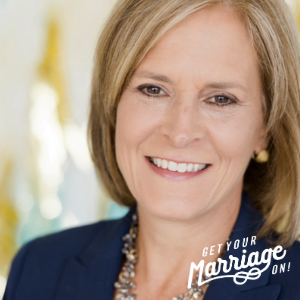With Jessa Zimmerman
It is completely normal in an intimate relationship such as marriage to have the two partners have varying levels of desire when it comes to intimacy or any other number of partnership goals and duties. You’re bound to have different desire levels than your spouse when it comes to maintaining a clean house, spending time outside, or how to write and stick to a budget. Successful couples learn how to work cohesively through different desire levels. One of the most significant places in a relationship where we can see different desires take a toll is in the bedroom.
When one partner feels a much lower desire for sex and intimacy in their relationship, it is easy for one or both partners to believe that the lower desire person (or the higher desire person) is broken, like something is wrong with them. But nothing is wrong with you! It is completely normal to not always be “in the mood”, and it is also completely normal to feel like you often are!
Desire level differences are always relative. Just as you might be taller or shorter than your spouse and you could have married someone where it was reversed, your level of sexual desire could be the higher or the lower if you were with a different person.
Who in a Relationship Tends to Have the Lower Desire Level?
One of the biggest misconceptions when it comes to differing desire levels is that the male is always the one in the relationship who has a higher desire level for sex. This simply isn’t true. Although hard research on this subject is hard to find and varies widely, Jessa Zimmerman from Intimacy with Ease told us that in her experience, it tends to be about half and half. Sometimes it is the male who has a higher desire level, while sometimes it is the female! Whoever it is, finding ways to communicate about these differences in desire openly, and ensuring that both spouses feel comfortable, are key to working through this.
“First let me just say, it is not always the woman who wants less sex. And because we have that image in our mind, if there’s a man who wants less sex, they often feel doubly broken. Or the woman might really be like, what in the world is wrong because men are supposed to just want sex. So, even that myth is a burden.” Let’s work together to break the stigma and help people realize that both genders want sex. And sometimes, neither do! It’s a give and take, just like anything in a relationship.

Traps of Desire Discrepancy
There are things that affect both partners during this time of desire discrepancy, or differing desire levels, that make it harder to connect and feel intimate and close with your spouse. These are slightly different for the spouse with a higher desire and the spouse with a lower desire.
For the spouse with the higher desire, it is easy to feel rejected when the lower desire spouse doesn’t want to have sex. You can feel unloved or unimportant very quickly, and take this ‘rejection’ very personally. These are insecurities the higher desire spouse is feeling that often forces the lower desire spouse to show up and have sex even when they really don’t want to. And when you do come have sex when you or your spouse really doesn’t want to, then you’re changing the meaning of sex! You’re making it all about pleasing you and making it so you aren’t hurt, offended, or pouting instead of coming together to share this wonderful thing you’re having.
For the lower desire spouse, it’s easy to fall into the trap of feeling broken, like there is something fundamentally wrong with you due to your lack of desire for sex. You may feel like there is nothing you can do to change this and feel pressured in your sex life. This can also cause sex to be changed, and be all about pressure and doing what you think is the ‘right’ thing to help your higher desire spouse. Again, we want sex to be something beautiful that is shared together!

Advocating for Yourself
“There’s a difference here. There’s advocating for what you want and talking about your sex life because it matters to you, and then there’s another thing to really kind of pressure your partner no matter what they’re feeling or no matter what they want, to show up for you.” Jessa Zimmerman has worked with countless couple’s who struggle due to their differing desire levels. What she has found is that pressuring your partner into having more sex with you isn’t going to help anything. We have to learn how to communicate with each other and advocate for ourselves and the things we want, without being too pushy.
The first step to this is taking the word “rejection” out of the equation. Realize that when your partner says no, they are just taking care of themselves. It doesn’t mean they find you not sexy or unattractive. Realize that there is proactive and reactive desire, not just one or the other. With proactive desire, you’re ready to go pretty much any time. You want to go get in the bedroom now; you are easily turned on. With reactive desire, you may not be in the mood now, but as you take your time cuddling, kissing, and working up to sex, you may find yourself having a stronger desire for sex at that moment. Neither one is bad. We simply need to work together to realize what we are feeling and use that to help us grow together in desire.
Making space for that desire is another big step. The way to do that is to “create a whole lot of maybe”. Try not to make sex a yes or no thing, where you either have sex all the way, or do nothing. “We really need to create space for the lower desire person to say, ‘well, maybe. I mean, I wasn’t thinking about sex, I’m not in the mood at all. But let’s start and see what happens.’ And so somewhere between 5% of the time and 95% of the time, sexual desire will show up, but it won’t be a hundred percent.” So let “maybe” be one of your new bedroom phrases, and it might just help both of you feel more satisfied with your sex life.

What is “Sex”?
Another way to help us navigate our differing desires is by redefining what sex is to us in our relationship. Is it just the act of intercourse? Or is the intimacy, the cuddling and kissing and being near one another? Expanding your definition of sex will help both spouses feel more satisfied and heard in your sex life.
Try not to limit what sex is for you or your partner. Perhaps your partner wants one thing to happen that night and you would like something else. Try to find a compromise so you are both feeling happy about the way things turned out. Be willing to accept different types of intimacy as the sex that will be happening. “In my mind, (sex) is any physical experience we share with our partner that is meant to be about pleasure and connection.” Expand your definition and enjoy.
Judgement Free Zone
Remember to make all of your discussions about sex, your desire level, things you like and dislike, etc. a judgement free time. We want to grow together and make this a truly amazing and pleasurable experience for both parties. Be open to sharing your fantasies with each other, no matter how wild. Sharing them doesn’t mean they have to happen. This is just a time to be open with each other and share what is going on in our minds.
Try to change up the wording you use when addressing concerns in the bedroom. Instead of using accusatory phrases and blaming your partner for things that aren’t going well, try instead to use something like “I want our marriage to be as strong as possible and I think we both know that our sex life isn’t going perfectly. Can we really work on this together so that it is truly working for the both of us?” This takes the accusation away and allows us to truly open up and find what works for both of us!

Intimacy With Ease
Jessa Zimmerman has an amazing program that helps you and your spouse navigate your way through differing desire levels. Check her out at her website intimacywithease.com or go straight to her masterclass on this topic at intimacywithease.com/masterclass. You can also check our Jessa’s book on Amazon titled Sex Without Stress.
Check out Jessa’s full course here! https://www.intimacywitheasemethod.com/a/44214/wVLdytyg
If you like what you read here, download the Intimately Us app, the fun and sexy app for your marriage! It’s full of games, connecting activities, and ideas to increase connection and pleasure in the bedroom.






